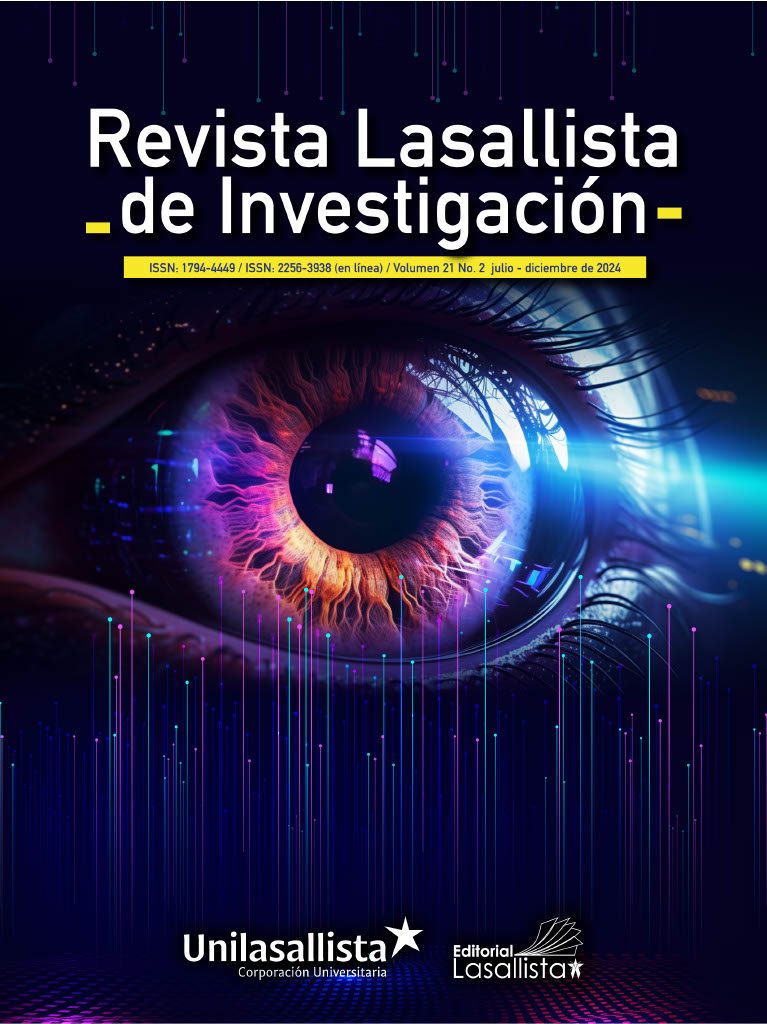Emotional Competencies and Pedagogical Practice: Analysis of Teacher Training in Colombia
Competencias emocionales y práctica pedagógica: análisis de la formación de docentes en Colombia

This work is licensed under a Creative Commons Attribution-NonCommercial-NoDerivatives 4.0 International License.
Show authors biography
Teacher training encompasses more than simply the transmission of academic knowledge; It also involves the development of social-emotional skills that allow them to address the complexities of teaching and learning. This bibliographic review article aims to explore the relationship between emotional competencies and pedagogical practice through a critical analysis of how the development of emotional competencies has been addressed in teacher training in Colombia. Methodologically, the study is based on a systematic review of the literature, examining previous studies and research that address topics related to emotional competencies, pedagogical practice and the training of teachers in emotional competencies in the Colombian context. The analysis carried out made it possible to identify trends, approaches, gaps and patterns in existing research, as well as provide an overview of how emotional competencies are addressed in teacher training and their impact on pedagogical practice. The findings highlight the importance of this connection between cognitive and socio-emotional skills, underlining the need for greater attention and development in this area. It is expected to provide a solid basis for reflection on educational policies and training programs that can strengthen the emotional competencies of teachers and, therefore, improve the quality of education in Colombia.
Article visits 3 | PDF visits 8
Downloads
- Aldrup, K., Carstensen, B., Köller, M. and Klusmann, U. (2020). Measuring teachers’ social-emotional competence: development and validation of a situational judgment test. Frontiers in Psychology, 11(892), 1-20. https://doi.org/10.3389/fpsyg.2020.00892.
- Barrios Tao, H., Peña Rodríguez, L. J. y Cifuentes Bonnet, R. (2019). Emociones y procesos educativos en el aula: una revisión narrativa. Revista Virtual Universidad Católica del Norte, (58), 202-222. https://revistavirtual.ucn.edu.co/index.php/RevistaUCN/article/view/1093.
- Buitrago Bonilla, R. E., Ávila Moreno, A. K. y Cárdenas Soler, R. N. (2017). El sentido y el significado atribuido a las emociones por el profesorado en formación de la Universidad Pedagógica y Tecnológica de Colombia. Contextos Educativos. Revista de Educación, (20), 77-93. Doi: https://doi.org/10.18172/con.2998.
- Buitrago-Bonilla, R. E. y Cárdenas-Soler, R. N. (2017). Emociones e identidad profesional docente: relaciones e incidencia. Praxis & Saber, 8(17), 225-247. Doi: https://doi.org/10.19053/22160159.v8.n17.2018.7208
- Calderón Palacio, I. C. (2023). Educar para el bienestar: una condición para la formación permanente de los maestros. Voces y Silencios. Revista Latinoamericana de Educación, 14(1), 20-37. https://doi.org/10.18175/VyS14.1.2023.3.
- Callejas, D. (2023). Una mirada a la inteligencia emocional y al conflicto escolar entre el periodo 2001-2021. Studies in Education Sciences, Curitiba, 4(1), 186-216.
- Chica, C., Sánchez, O. y Pacheco, A. (2019). Educación emocional en las organizaciones formadoras de maestros. Revista Latinoamericana de Estudios Educativos, 16(1), 93-120.
- Chica, C., Sánchez, O. and Pacheco, A. (2020). A Look at Teacher Training in Colombia: The Utopia of Emotional Training. Utopía y Praxis Latinoamericana, 25(4), 283-296. Doi: https://doi.org/10.5281/zenodo.3931081.
- Chica-Palma, O y Sánchez-Buitrago, J. O. (2015). Escenarios problematizadores de las organizaciones educativas desde la perspectiva del desarrollo de competencias emocionales en los docentes en formación. Praxis, 11(1), 116-131. Doi: https://doi.org/10.21676/23897856.1559.
- Duraiappah, A. and Chatterjee Singh, N. (2020). Rethinking Learning, A Review of Social and Emotional Learning for Education Systems. UNESCO Mahatma Gandhi Institute of Education for Peace and Sustainable Development. https://mgiep.unesco.org/rethinking-learning
- Fernández-Berrocal, P. (2023). Inteligencia emocional. Aprender a gestionar las emociones. Editorial Bonalletra Alcompas.
- Ferreira, M., Martinsone, B. and Talić, S. (2020). Promoting Sustainable Social Emotional Learning at School through Relationship-Centered Learning Environment, Teaching Methods and Formative Assessment. Journal of Teacher Education for Sustainability, 22(1), 21-36. https://doi.org/10.2478/jtes-2020-0003.
- García, J. y Otero, A. (2023). Habilidades socioemocionales en docentes universitarios. Diálogos Interdisciplinarios en Red, 9(2), 502-519.
- Godoy, I. A. (2021). Entre la razón y la emoción. Estudio sobre inteligencia. [Tesis Doctoral]. Universidad de Sevilla.
- Goleman, D. (2018). La inteligencia emocional (4ta ed). Ediciones B México.
- Greenhalgh, T., Thorne, S. and Malterud, K. (2018). Time to challenge the spurious hierarchy of systematic over narrative reviews? Europan Journal of Clinical Investigation, 48(6). Doi: https://doi.org/10.1111/eci.12931.
- Grijalba, N., Cano, L. y Pérez Y. (2021). La formación socioemocional busca cupo en la escuela primaria en Colombia. Foro Educacional, 36(3), 133-158. Doi: https://doi.org/10.29344/07180772.36.2743.
- Jaramillo, S., & López, G. (2021). Sentidos, enfoques y perspectivas de la investigación en educación en tiempos de incertidumbre. Tesis doctoral, Medellín. https://repository.upb.edu.co/handle/20.500.11912/8721
- Lozano-Peña, G., Sáez-Delgado, F., López-Angulo, Y. and Mella-Norambuena, J. (2021). Teachers’ Social–Emotional Competence: History, Concept, Models, Instruments, and Recommendations for Educational Quality. Sustainability, 13(21), 1-26. https://doi.org/ 10.3390/su132112142Academic.
- Mujica, F., Inostroza, C. y Orellana, N. (2018). Educar las emociones con un sentido pedagógico: un aporte a la justicia social. Revista Internacional de Educación para la Justicia Social, 7(2). Doi: https://doi.org/10.15366/riejs2018.7.2.007.
- Ortiz, R. G. (2020). Relación entre inteligencia emocional y el desempeño laboral, en el sector educativo de Latinoamérica: una revisión sistemática de literatura entre los años 2015 a 2019 (Trabajo de investigación). Repositorio de la Universidad Privada del Norte. https://hdl.handle.net/11537/2576.
- Pineda-Rodríguez, Y. L. y Loaiza-Zuluaga, Y. E. (2018). Estado del arte de las prácticas pedagógicas de los maestros de las escuelas normales superiores y las facultades de educación. Praxis, 14(2). Doi: http://dx.doi.org/10.21676/23897856.2914.
- Quiroz, R. y Echeverri, C. (2021). Sentidos, enfoques y perspectivas de la investigación en educación en tiempos de incertidumbre. UPB.
- Rendón, M. A. (2019). Competencias socioemocionales de maestros en formación y egresados de programas de educación. Praxis & Saber, 10(24), 243-270. Doi: https://doi.org/10.19053/22160159.v10.n25.2019.10004.
- Rodríguez, S. and Marquínez, O. (2024). Empathic Interactions in Multigrade Schools: A Strategy for Developing a Didactic Subject of Learning. Migration Letters, 21(S2), 180-206. https://migrationletters.com/index.php/ml/article/view/6492.







